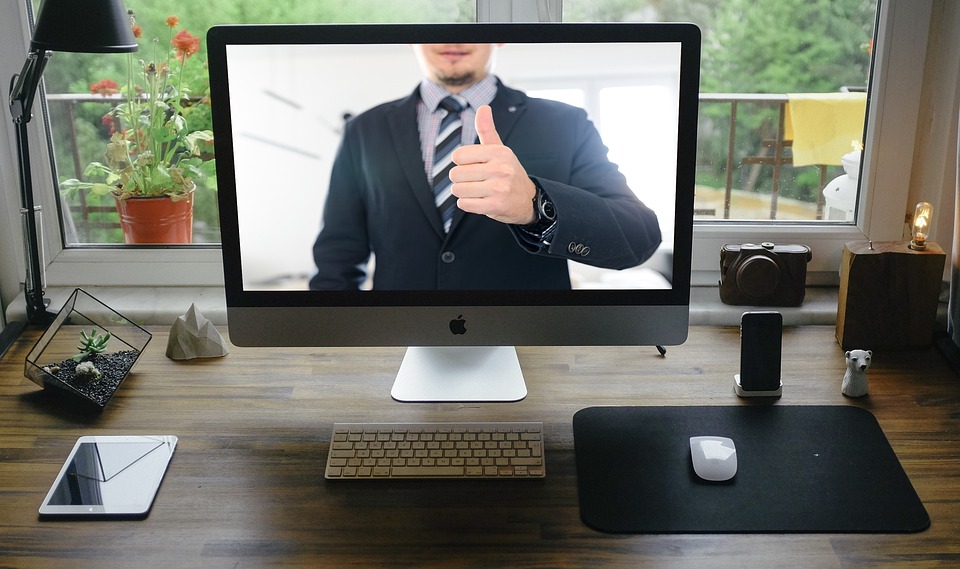It would be logical to assume that, of all professions, military personnel would be comfortable with a distributed way of working. After all, it is precisely how armed forces are designed to function on operations. Yet the enforced working from home (WFH) because of COVID-19 has been far from seamless. WFH on a mass scale calls for new leadership and management techniques to continue to operate effectively. This article presents some personal observations resulting from a couple of weeks of WFH: the first week out of choice/opportunity and collaborating with colleagues still in office, the second week with everyone working remotely.
The article focuses on how to make the new way of operating routine, and some accompanying leadership observations. The observations cover managerial, strategic and responsible leadership factors. To be effective in this new environment requires adaptation. Regardless of the sector of the economy in which we work we must all be accepting of the change in tempo and the painstaking patience required to continue to deliver. We should anticipate our people’s need for an outlet and develop new sensors to detect the emergence of problems. We must be inquisitive and innovative, keen to experiment and anticipate that it won’t always work out. And we must be alert to, acknowledge and record the many lessons as we go along. This is by no means gospel, but hopefully it will spark further discussion.
Set yourself up for permanent change
There has been plentiful vocal acceptance that the world is a different place to that of a few weeks ago. But adjustment of expectations and substantive change in the prioritisation of effort has been slow to follow. Part of this is a self-induced pressure in not wanting to admit that you are unlikely to be able to deliver what was previously expected. Self-interest is also responsible for generating a fair proportion of the pressure. It might be worth reflecting whether the demands you are placing are genuinely necessary or serve an ulterior motive.
Adjust your demands (down) accordingly and be ruthlessly honest (up) about what is reasonable and acceptable in the WFH environment. And do not lose sight of the long term. It feels incongruous considering the daily news feed, but there will be a world beyond COVID-19. The laudable enthusiasm to mobilise everyone and everything to deal with the current crisis must be balanced to ensure the long-term ‘important’ issues are not excessively subordinated to short-term ‘urgent’ tasks.

‘Chief of Staff’ the sh*t out of it
With advances in technology, we should also recognise that we are better placed than at any time in the past to prevent us from grinding to a halt. The ‘virtual workplace’ is unrecognisable from even a few years ago. But to make it function requires: (1) an adjustment of tempo; (2) a strict application of structure; and (3) painstaking efforts to maintain breadth and depth of situational awareness. Even without lockdown, leading and working in a WFH environment would result in a reduction in tempo. Throw in the multiple challenges that demand a complete recalculation of everyone’s domestic equilibrium and the arrestation becomes even more severe.
‘Battle rhythm’ must be more deliberate: how and when you ‘check-in’, monitor progress against your various tasks, issue direction & inform of wider developments (etc..) all requires careful thought and planning. The more personal, individualised methods used to adapt and fine tune – water-cooler and coffee break conversations, for instance – no longer provide a convenient backstop to clarify what is expected. Maintaining all your people’s situational awareness assumes a higher degree of importance. It is possible that the person with original responsibility for a task won’t be able to fulfil it. A well-populated and ‘read-in’ ‘replacement bench’ takes time, effort and, sometimes, frustrating repetition to form. But it is a prudent measure to ensure productivity survives in the long run.
There is, however, a risk in being excessively clinical in how you operate. Prescriptive ‘Standard Operating Procedures’ are important. But in the WFH workplace there is risk to your people’s mental healthiness in being excessively perfunctory. For many, virtual meetings will be the only means of professional contact beyond their four walls. Agendas should be clear, but with sufficient latitude to meander, or separate meetings created solely for the benefit of human interaction. Speed of completion is not a satisfactory metric for the quality of a meeting. Giving people back ‘white space’ in their calendar is a false economy, on multiple levels, if care is not taken to fully explore both the issue at hand and the mental and physical welfare of the workforce. .
Maintain a listening watch
Responsible Leadership1 places great importance on listening and watching. It is no different in a virtual environment. Indeed, it is arguably more important, even if it takes greater effort to conduct. What previously might have been achieved subconsciously in a sweeping scan of the office floorplate on a daily basis is now much more challenging. Curiosity should abound: who is present and who isn’t (& why); who’s on video and who’s on voice/dial-in (& why); who has contributed and who has remained silent (& why); where are people working from (& why)?
The virtual workplace creates shadows of anonymity. Some may thrive in it, but for others it only serves to further obscure the danger signals. This places additional leadership and management burdens that we are not trained for or experienced in. Everyone should be encouraged to an element of ‘air-time’, but on a medium with which they are comfortable. If that means multiple one-on-one phone calls timed for after young peoples’ bedtime, so be it. One of the main advantages to emerge in the last few weeks is a revitalised and heightened awareness of the ‘people systems’ resulting in a more genuine, broader compassion both for individuals’ work-based and home-based contexts.
Experiment with alternative ways of expressing your personality
Leadership has traditionally been associated with visibility, personality and presence. In a ‘socially distanced’ workplace, how leaders achieve all three elements requires re-examination. Arguably, ‘personality’ is the least affected by the new environment. Different skill sets assume a different premium, and there are myriad ways to ensure effective and efficient transfer of information and communication of intent. It may sound obvious, but content and impact will differ depending on the medium itself, how you use it and the intended (and sometimes unintended) recipient. From one-to-one phone calls to broad conference calls; vlogs, blogs, and tweets; letters, emails or IMs. The key thing is to be tactical: explore and innovate with them all.

Do not accept the ‘new normal’
There’s a growing sense that the ‘WFH workplace’ is so novel that we accept what falls into place as the ‘new normal’. We must guard against this relative complacency. It is the human condition to grasp for a structure that provides a semblance of surety. Rather, we should acknowledge that the ‘new normal’ that we first alight on is not an optimal state: it is merely version 1.0 and must be shaped to our needs. This is not to contradict my first point that the sooner we accept the environment for what it is, the better. But as both leaders and employees we should push the boundaries through curiosity and experimentation to make the ‘new normal’ as best it can be.
Don’t forget the early lessons
While we must not overlook the serious impact of the pandemic, it is impossible to ignore some of the personal and societal benefits that are emerging through WFH, from the banal to the profound. Lunch is no longer a sandwich crammed in whilst sat at a work-station. People appear more willing to speak up when something proposes to compromise domestic equilibrium: it feels far less permissive to expect people to work antisocial hours. The response from (some) leaders feels increasingly humble, and human. And how much more productive are we without a lengthy commute?2
My final observation is that post-Corona Virus we should all be thinking & acting differently. My overwhelming concern is that, having muddled our way through the early stages we will surface on the other side breathing a sigh of relief, without having fully learned the lessons from the initial capsize. We will inevitably be drawn back to practises that used to prevail: we must be alert to this risk. It is a truism, but no less valid as a consequence: the pandemic presents an opportunity to shape the modern workplace by intent and design, rather than reverting to default. We must be ambitious. If we are not, we will only serve to cement organisational vulnerabilities and discard opportunities for beneficial reform.

Damian Flanagan
Damian is a serving officer on the Army Advanced Development Programme. He is currently part of a small team creating and developing the MOD's environmental sustainability strategy, & trying to complete an executive MBA at WBS.
Footnotes
- For the curious, further information related to how the Forward Institute defines Responsible Leadership can be found at: https://www.forward.institute/why-responsible-leadership
- These statements are both personality and context dependent. The observations are personal to me: I listened in admiration as a staff member admonished a senior executive for allowing a Skype conference to run into ‘bath & bed’ time. But you can see them reflected elsewhere (see: https://hbr.org/2020/04/what-good-leadership-looks-like-during-this-pandemic). And some are just plain self-evident (see: https://www.vitality.co.uk/business/healthiest-workplace/findings/)

